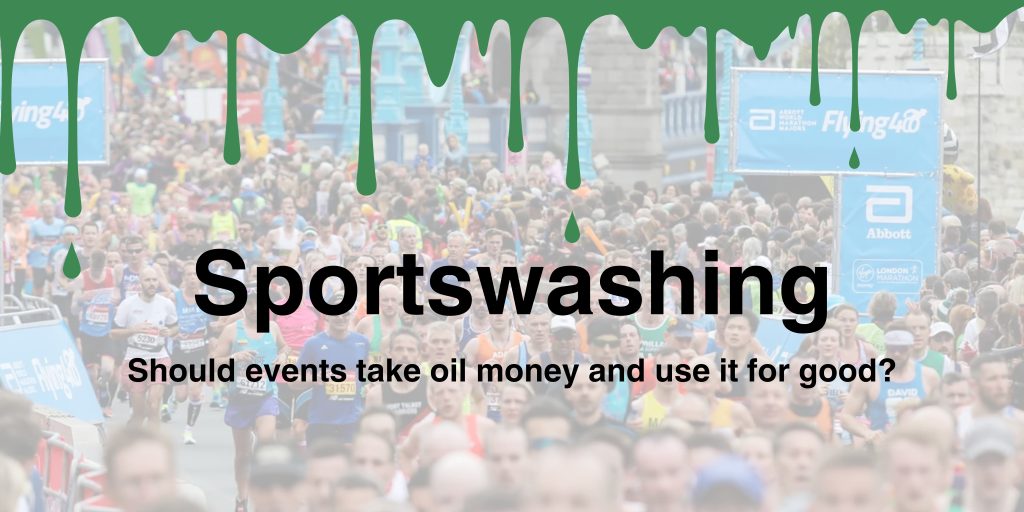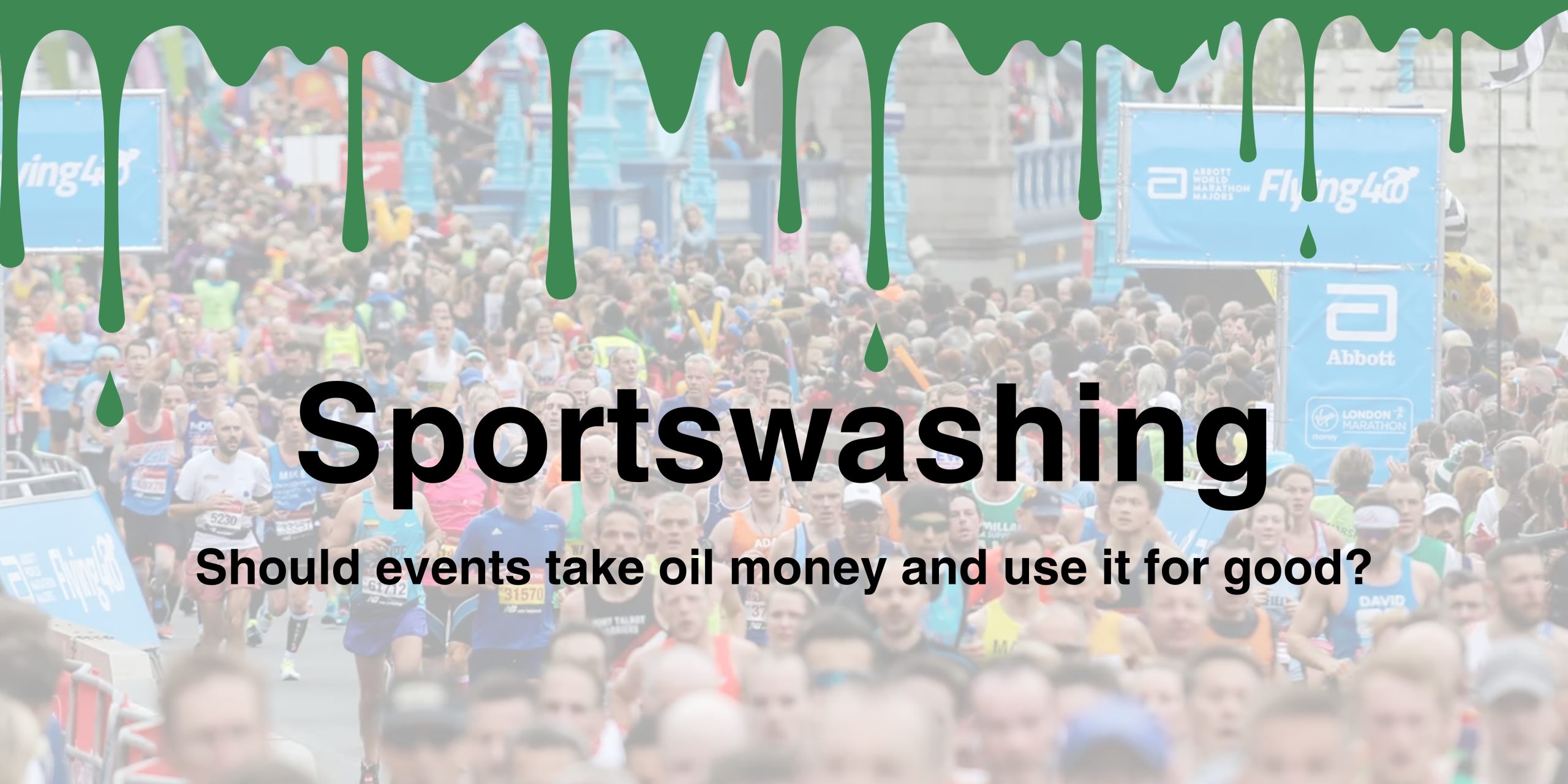by Martin Elcoate

The Green Runners say that taking sponsorship money from the fossil fuel industry and using it for supposed good causes just isn’t acceptable.
We’ve called out organisers of running events (UTMB, Royal Parks Half, Boston Marathon etc.) for participating in sportswashing, the practice of high-carbon companies using the positive image of sport to deflect from their problematic practices. We’ve been asked many times whether using a sponsor’s money for good outweighs the significant issues of taking the blood oil money.
Our short answer is no.
And here’s our slightly longer answer…
Taking responsibility
When an organiser of a running event takes on a sponsor, our running community is being appropriated in some way by that sponsor. So, when Dacia sponsored the UTMB Mont Blanc, it was a conscious attempt by Dacia to try and enhance their image among the trail running community. In this case linking adventures in the mountains with the benefits of owning an SUV. So rather than supporting and celebrating the race for the sake of itself, the race is being commodified and the values that went into creating it undermined.
When event organisers weigh up the ethics of a sponsor, they assess the potential value or harm to their immediate circle of stakeholders. And some come to the conclusion that taking money from unethical brands is the right thing to do.
The question those organisers should be addressing is: at whose expense does that benefit arise from? And are the voices of those groups being given equal weight in the decision?
Are they, for example, really comfortable with the idea that an SUV-manufacturer might help fund a race around Mont Blanc for runners who can afford to toe the start line, while people in inner cities suffer from roads bloated with outsized cars and toxic air, and people on low-lying islands see their existence go under water due to climate breakdown? The sphere of accountability goes wider than many think.

The bottom line
A point often raised in response is, “If we didn’t take the money, we couldn’t put on this event at scale”.
We do not deny sponsors are essential in helping some events run, but this point is rooted in a quantitative approach to ethics where any issue or injustice could supposedly be addressed/bought-off if the sponsor simply offered the right amount of money. It suggests that, rather than having clarity about their values, an organisation’s ethics are up for negotiation if only enough money is offered. Is it really a question of ‘any sponsor, if the price is right’? Is growth in the event, for example, worth it at any cost to wider society?
Furthermore, by having a high-carbon headline sponsor an event undoes any other sustainability work it may be doing, turning, say, plastic waste reduction or incentivising low-carbon travel into mere greenwashing.
Values-based sponsorship
Organisations should be working from a place of clear ethical values and ‘red lines’ consistent with the work they do and applying those values consistently. And this is the value of Badvertising’s ethical guidelines: the Game Changer Sponsorship Pledge. It helps take the guesswork out of these ethical considerations and demonstrates that decisions regarding sponsorship truly take in the bigger picture.
The top commitment from Badvertising’s list we believe events should subscribe to is:
Not signing sponsorship deals / ending sponsorship deals with high-carbon industries including: Fossil fuel companies, fossil fuel financers, airports and airlines, and car manufacturers.
As more people look to be considerate of their impact on our environment, events need to take action to reduce their negative impact on the planet. We believe committing to this Badvertising pledge does that, and events should refence this in advertising and ethical policies.
So, no, we don’t believe that organisations should take oil money and use it for the “greater” good. Our running community deserves better than that.
You can find out more about Badvertising here Badvertising (badverts.org)
Our thanks to Culture Unstained for their significant contribution to this article. Their website contains great resources on this topic https://cultureunstained.org/ethicalsponsorship/
About the author
Martin is a recreational runner living in Devon, UK. He runs to explore his local area, enjoying long days out in the Devon hills. Martin works behind the scenes for The Green Runners on campaigns, social media and promoting ways in which we can make a difference in the face of the climate emergency. His pledges include continuing not to eat red meat, speaking up to promote The Green Runners & calling for action in relation to the climate emergency


